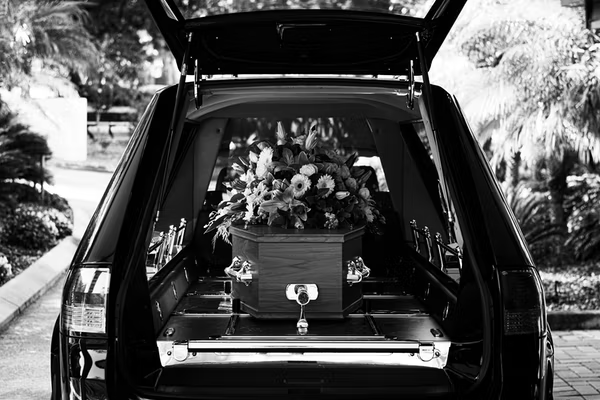
How Do You Wish to Be Remembered? Write Your Own Eulogy to Become That Person
Imagine your friends and relatives gathered around your lifeless body as it lies in a casket. Considering our own death is difficult regardless of your philosophical or theological views.
What do you want the story of your life to reveal about who you were? Who will say what? What will they recall?
“A thousand times we die in one life. We crumble, break, and tear apart until the layers of illusion are burned away and all that is left, is the truth of who and what we really are.”
-Teal Scott
How do you wish to be remembered? Write your own eulogy and use it as a blueprint for your future.
The Blueprint
Daniel Harkavy, the author of Living Forward, popularized the creative activity of writing your own eulogy. Millions of people now use it to organize their lives and determine future moves in their personal and professional lives.
Harkey says, “When we take the time to write our eulogies, it creates this magnetic pull power that draws us forward, our priorities and our vision for where we want to be as leaders and how we’ll get there come into sharp focus. This clarity enables us to make the best decisions, get up out of our comfortable patterns, create new habits, and start moving us toward a better future.”
The majority of people are profoundly affected by writing their own eulogy. It produces a sense of clarity and urgency. Only the major decisions retain significance in the face of death. The minor humiliations, failed plans, and missed opportunities fade away, leaving only the large picture and the crucial decisions.
Writing your own eulogy
While you could write a eulogy that listed all of your achievements and significant life events in chronological order, it would be more effective to use familiar themes to weave a crimson thread across your life story.
Answering these questions could assist you in creating an outline, but this is by no means a comprehensive guide on writing eulogies.
1. History – Where were you born? Do you have any amusing childhood stories or family traits that helped to shape you?
2. Education – Where did you go to school? What did you study? Did you do any interesting research?
3. Geography – Where have you lived throughout your life? Have you traveled to foreign lands and met exciting people?
4. Occupation – What kind of work did you do? Did you continue working for the same employer or change jobs? Did you launch a business? If so, what happened? Have you received any honors for your work?
5. Relationships – Who was the love of your life? Did you marry and have children? How important is family to your story?
6. Hobbies – What did you do outside of work? Do you have any noteworthy accomplishments?
7. Personality – What do you believe people admire most about you? How do they enjoy spending time with you? How have you helped others? What will people miss most about you?
It would be best if you took your time when responding to these questions. Find a peaceful place free from distractions to ponder your answers.
Imagine the person reading the eulogy at your funeral. How many people are there? What does it look like? If you die today, will your friends and family answer these questions the same way you do?
Work backward to determine your actions
When your eulogy is complete, reread it out loud. If reading it doesn’t elicit strong feelings, you might want to give it another go. The story of your life should feel meaningful and important to you. If not, it’s time to take action.
Divide the information in your eulogy into manageable steps to create goals. What habits can you establish to ensure that this eulogy holds true on the day of your funeral? What minor adjustments might you make right now to move this story closer to reality?
We’re not trying to create a blueprint for your entire life. Instead, focus on small victories and behaviors you can change today that will add up throughout your lifetime. Read your own eulogy whenever you feel confused or unsure of what to do next. Use your eulogy as a compass.
Your self-written eulogy should be for your eyes and ears only. We’re not giving instructions to the person who will eventually need to write your eulogy.
How do you want them to remember you? Are you that person now? If not, start writing.
Take care, even down there.
Share this Post